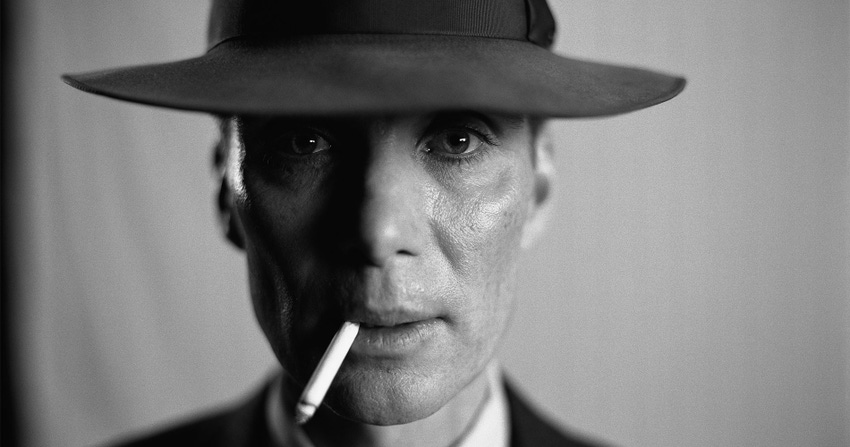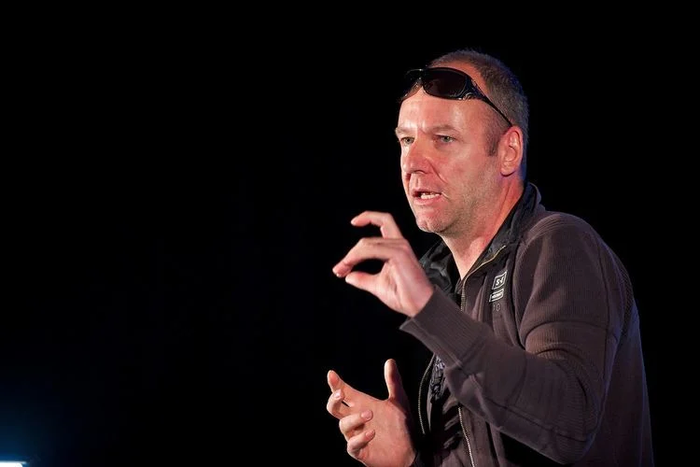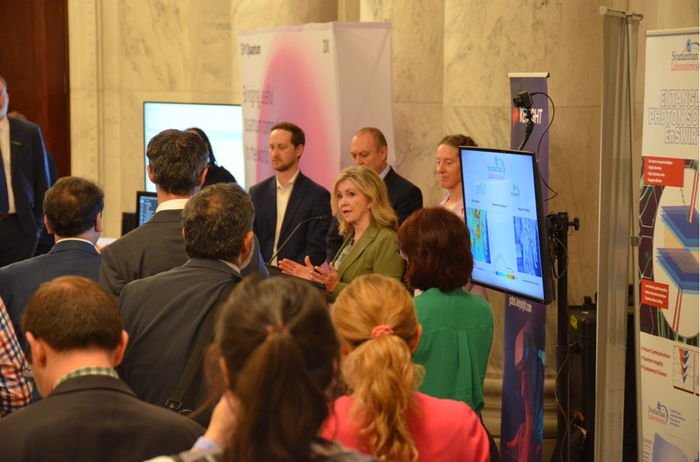
Connects decision-makers and solutions creators to what's next in quantum computing
Oppenheimer's Real-Life Quantum Physicists
Movie depicts a dozen other physicists who worked on the Manhattan Project

Oppenheimer, a biographical thriller that chronicles the life of theoretical physicist J. Robert Oppenheimer, was the big winner of the 96th Oscars after scooping seven awards including best picture and best actor for Cillian Murphy.
As well as the title character, Oppenheimer depicts a dozen other physicists who worked on the Manhattan Project or related research, much of which advanced quantum theory. Here are the scientists featured in the movie who contributed to the development of quantum science along with the actors who played them and a brief summary of their quantum research, according to Wikipedia. Scientists whose profiles did not include the word quantum have been excluded.
J. Robert Oppenheimer (Cillian Murphy)
Oppenheimer made significant contributions to theoretical physics, including achievements in quantum mechanics and nuclear physics. He made the first prediction of quantum tunneling and made contributions to quantum field theory.
Albert Einstein (Tom Conti)
While best known for his theory of relativity, Einstein made several contributions to quantum theory. He discovered the law of photoelectric effect, a pivotal step in quantum theory. His work on the quantum physics of radiation introduced the idea that light consisted of particles, subsequently called photons.
However, Einstein fought against quantum theory introducing fundamental randomness into science's picture of the world, objecting that "God does not play dice.” The film plays on this theme, with repeated references to probability and gambling.
Niels Bohr (Kenneth Branagh)
Bohr received the Nobel Prize in physics in 1922 for his work on atomic structure and quantum theory. He introduced the idea that an electron could drop from a higher-energy orbit to a lower one, in the process emitting a quantum of discrete energy.
Richard Feynman (Jack Quaid)
Feynman is known for his work in the path integral formulation of quantum mechanics, the theory of quantum electrodynamics and his work in particle physics. Feynman was a joint recipient of the Nobel Prize in Physics in 1965 for his contributions to the development of quantum electrodynamics and has been credited with pioneering the field of quantum computing.
Werner Heisenberg (Matthias Schweighöfer)
Heisenberg was one of the main pioneers of the theory of quantum mechanics and developed the matrix formulation of quantum mechanics. He is known for the uncertainty principle, which he published in 1927 and was awarded the 1932 Nobel Prize in Physics "for the creation of quantum mechanics".
Enrico Fermi (Danny Deferrari)
Fermi made significant contributions to the development of statistical mechanics, quantum theory and nuclear and particle physics. While giving lectures on the new quantum mechanics based on the remarkable accuracy of predictions of the Schrödinger equation, Fermi would often say, "It has no business to fit so well!"
Edward Teller (Benny Safdie)
Teller made contributions to Thomas–Fermi theory, which led to a standard tool in the quantum mechanical treatment of complex molecules. His dissertation dealt with one of the first accurate quantum mechanical treatments of the hydrogen molecular ion.
Philip Morrison (Harrison Gilbertson)
As well as his work on the Manhattan Project, Morrison is known for his later work in quantum physics, nuclear physics high energy astrophysics and the search for extra-terrestrial intelligence (SETI).
Isidor Rabi (David Krumholtz)
Rabi made several significant contributions to quantum physics during his career including the development of nuclear magnetic resonance, for which he was awarded the Nobel Prize in Physics in 1944.
From a marketing perspective, the movie went head-to-head with Barbie when it was released in Jul 2023, prompting many moviegoers to attempt the “Barbenheimer” double bill, watching both titles consecutively. While Oppenheimer succeeded at the Oscars, Barbie won at the box office, bringing in $1,445 million globally, compared with Oppenheimer's $957 million.
About the Author(s)
You May Also Like
.png?width=100&auto=webp&quality=80&disable=upscale)
.png?width=400&auto=webp&quality=80&disable=upscale)




